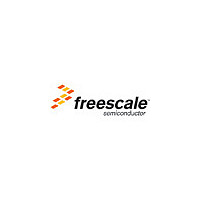MC68EN360AI25VL Freescale, MC68EN360AI25VL Datasheet - Page 557

MC68EN360AI25VL
Manufacturer Part Number
MC68EN360AI25VL
Description
Manufacturer
Freescale
Datasheet
1.MC68EN360AI25VL.pdf
(962 pages)
Specifications of MC68EN360AI25VL
Family Name
M68000
Device Core
ColdFire
Device Core Size
32b
Frequency (max)
25MHz
Instruction Set Architecture
RISC
Operating Supply Voltage (max)
3.3V
Operating Supply Voltage (min)
2.7V
Operating Temp Range
0C to 70C
Operating Temperature Classification
Commercial
Mounting
Surface Mount
Pin Count
240
Package Type
FQFP
Lead Free Status / RoHS Status
Compliant
Available stocks
Company
Part Number
Manufacturer
Quantity
Price
Company:
Part Number:
MC68EN360AI25VL
Manufacturer:
Freescale Semiconductor
Quantity:
10 000
Part Number:
MC68EN360AI25VL
Manufacturer:
FREESCALE
Quantity:
20 000
- Current page: 557 of 962
- Download datasheet (4Mb)
TX—Tx Buffer
RX—Rx Buffer
7.10.21.12 TRANSPARENT MASK REGISTER (SCCM). The SCCM is referred to as the
transparent mask register when the SCC is operating in transparent mode. It is a 16-bit read-
write register that has the same bit format as the transparent event register. If a bit in the
transparent mask register is a one, the corresponding interrupt in the event register will be
enabled. If the bit is zero, the corresponding interrupt in the event register will be masked.
This register is cleared upon reset.
7.10.21.13 SCC STATUS REGISTER (SCCS). The SCCS is an 8-bit read-only register that
allows the user to monitor real-time status conditions on the RXD line. The real-time status
of the CTS and CD pins are part of the port C parallel I/O.
CS—Carrier Sense (DPLL)
7.10.21.14 SCC TRANSPARENT EXAMPLE. The following list is an initialization se-
quence for an SCC transparent channel. The transmitter and receiver are both enabled, but
operate independently of each other; they implement the connection shown on QUICC 2 in
Figure 7-64. Both transmit and receive clocks are provided externally to QUICC 2 using the
CLK7 pin. SCC4 is used. The transparent controller is configured with the RTS4 and CD4
pins active. CTS4 is grounded internally by the configuration in port C. A 16-bit CRC-CCITT
is sent with each transparent frame. The FIFOs are configured for fast operation.
A buffer has been transmitted. This bit is set no sooner than when the last bit of the last
byte of the buffer begins its transmission, assuming the L-bit of the Tx BD is set. If the L-
bit is not set, TX is set when the last byte of data is written to the transmit FIFO.
A complete buffer has been received on the SCC channel. This bit is set no sooner than
two serial clocks after the last bit of the last byte in which the buffer is received on the RXD
pin.
This bit shows the real-time carrier sense of the line as determined by the DPLL, if it is
used.
1. The SDCR (SDMA Configuration Register) should be initialized to $0740, rather than
2. Configure the port A pins to enable the TXD4 and RXD4 pins. Write PAPAR bits 6
3. Configure the port C pins to enable RTS4, CTS4, and CD4. Write PCPAR bit 3 with
4. Configure port A to enable the CLK7 pin. Write PAPAR bit 14 with a one. Write
0 = The DPLL does not sense a carrier.
1 = The DPLL does sense a carrier.
being left at its default value of $0000.
and 7 with ones. Write PADIR bits 6 and 7 with zeros. Write PAODR bits 6 and 7
with zeros.
one and bit 11 with zero. Write PCDIR bits 3 and 11 with zero. Write PCSO bit 11
with one and bit 10 with zero.
Freescale Semiconductor, Inc.
—
7
For More Information On This Product,
—
6
MC68360 USER’S MANUAL
Go to: www.freescale.com
—
5
—
4
—
3
Serial Communication Controllers (SCCs)
—
2
CS
1
—
0
Related parts for MC68EN360AI25VL
Image
Part Number
Description
Manufacturer
Datasheet
Request
R

Part Number:
Description:
TOWER ELEVATOR BOARDS HARDWARE
Manufacturer:
Freescale Semiconductor
Datasheet:

Part Number:
Description:
TOWER SERIAL I/O HARDWARE
Manufacturer:
Freescale Semiconductor
Datasheet:

Part Number:
Description:
LCD MODULE FOR TWR SYSTEM
Manufacturer:
Freescale Semiconductor
Datasheet:

Part Number:
Description:
DAUGHTER LCD WVGA I.MX51
Manufacturer:
Freescale Semiconductor
Datasheet:

Part Number:
Description:
TOWER SYSTEM BOARD MPC5125
Manufacturer:
Freescale Semiconductor
Datasheet:

Part Number:
Description:
KIT EVALUATION I.MX51
Manufacturer:
Freescale Semiconductor
Datasheet:

Part Number:
Description:
KIT DEVELOPMENT WINCE IMX25
Manufacturer:
Freescale Semiconductor
Datasheet:

Part Number:
Description:
TOWER SYSTEM KIT MPC5125
Manufacturer:
Freescale Semiconductor
Datasheet:

Part Number:
Description:
TOWER SYSTEM BOARD K40X256
Manufacturer:
Freescale Semiconductor
Datasheet:

Part Number:
Description:
TOWER SYSTEM KIT K40X256
Manufacturer:
Freescale Semiconductor
Datasheet:

Part Number:
Description:
Microcontrollers (MCU) MX28 PLATFORM DEV KIT
Manufacturer:
Freescale Semiconductor
Datasheet:

Part Number:
Description:
MCU, MPU & DSP Development Tools IAR KickStart Kit for Kinetis K60
Manufacturer:
Freescale Semiconductor
Datasheet:

Part Number:
Description:
24BIT HDMI MX535/08
Manufacturer:
Freescale Semiconductor
Datasheet:
Part Number:
Description:
Manufacturer:
Freescale Semiconductor, Inc
Datasheet:
Part Number:
Description:
Manufacturer:
Freescale Semiconductor, Inc
Datasheet:











